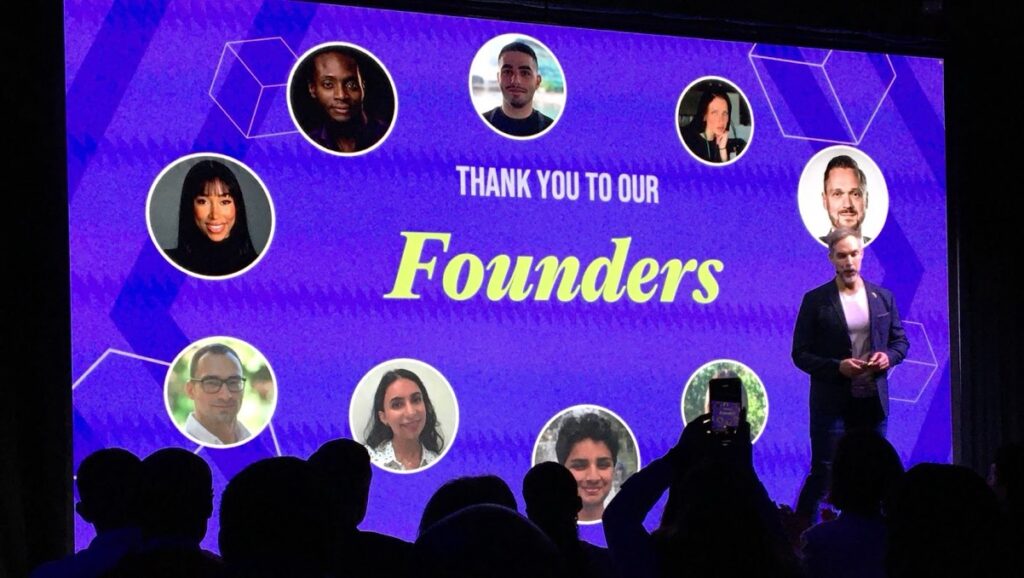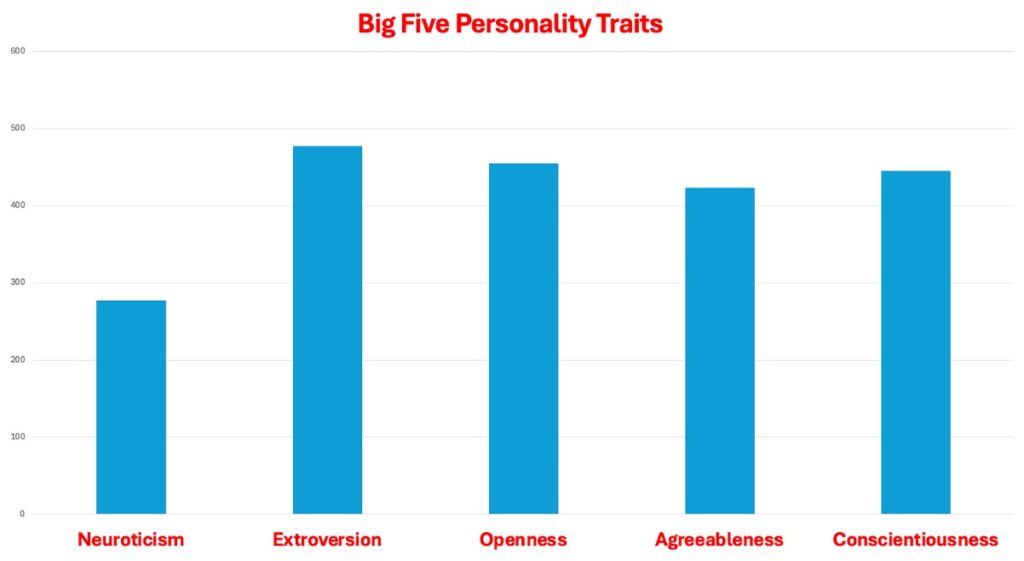|
Getting your Trinity Audio player ready...
|
Starting your own business is tough, as any entrepreneur will tell you. Thankfully, people still want to do it because those new businesses, if they survive, will provide jobs for the rest of us in the years to come.
So why does anyone put themselves through the trauma of founding a company? Probably, as President John F. Kennedy said in 1962 of the ambition to go to the moon, not because it’s easy but because it’s hard. The sad truth is that most startups fail, but the ones which don’t can succeed spectacularly.
To find out about the motives and characters of today’s entrepreneurs, I spoke to the latest cohort of business founders graduating from London’s Block Dojo Web3 and artificial intelligence (AI) tech incubator program.

Trying to go beyond impressions and anecdotes, I asked them to take the Big Five Personality Traits test to see how they scored on the different qualities the test claims to measure: Extraversion, Conscientiousness, Openness to New Experiences, Neuroticism, and Agreeableness.
Psychologists disagree on whether entrepreneurs have a particular personality profile. But those who believe they do and who use the Big Five test say that the average founder will score highly on Extraversion, Conscientiousness, and Openness and low on Neuroticism.
Well, guess what? That was exactly what I found when I combined the scores from the Block Dojo founders who had done the test for me. Their three highest scores were exactly as predicted, and their lowest score too:

Speaking to the founders about their results, I found that none of them was surprised to have scored highly on Extroversion. As Esteban Quintero, founder and CEO of Abroad, put it: “I’m super-extrovert. If I go to concerts or parties, I’m the one talking to people, asking people to dance. I’m putting all the energy into the party”.
Conscientiousness means working hard and following through on your commitments. For Gavin Johnson, founder and CEO of iRealise, that rings true: “There are roadblocks and barriers in your way. It’s up to you to figure it out. The characteristics I would suggest of a founder are perseverance and resilience.”
Being low on Neuroticism isn’t just a negative; it means coping well with stress. Alex Molokwu, Founder and CEO of Yuno, said he learned that in his previous work as a financial trader by watching his colleagues deal with tensions.
“All those other traders, they were brilliant at trying to manage their stress,” he noted.
Not all of the founders at Block Dojo were convinced that their personalities explained why they and their colleagues had ended up in the program.
Sev Gunes-Lasnet, founder and CEO of Trajex, said she thinks “everybody could do it.” Having the ‘founder mentality’ is in tune with bigger trends in society, as more and more people have freelance careers and are finding their way as ‘digital nomads,’ who “work from anywhere and adopt this sort of freelancer entrepreneur mindset.”
Maybe we don’t have to choose between personality and circumstances to explain why someone becomes an entrepreneur. Zoë van der Zee, the founder and CEO of Creativ Linc, said that it’s “probably situational and personality together.”
Her view comes from examining the mix in the Block Dojo group: “Between myself and the other seven founders, we’re all very different people, very different backgrounds, very different stories. But we’ve all kind of situationally seen an opportunity to slide in the market gap somewhere.”
So, personality traits might help but don’t be put off from applying to join the next cohort of Block Dojo founders if your Big Five scores don’t come out in the stereotypical way. It takes all sorts of ways to start new businesses, and you could be one of them.
Watch: Block Dojo cohorts turn real-word problems into opportunities

 02-20-2026
02-20-2026 




